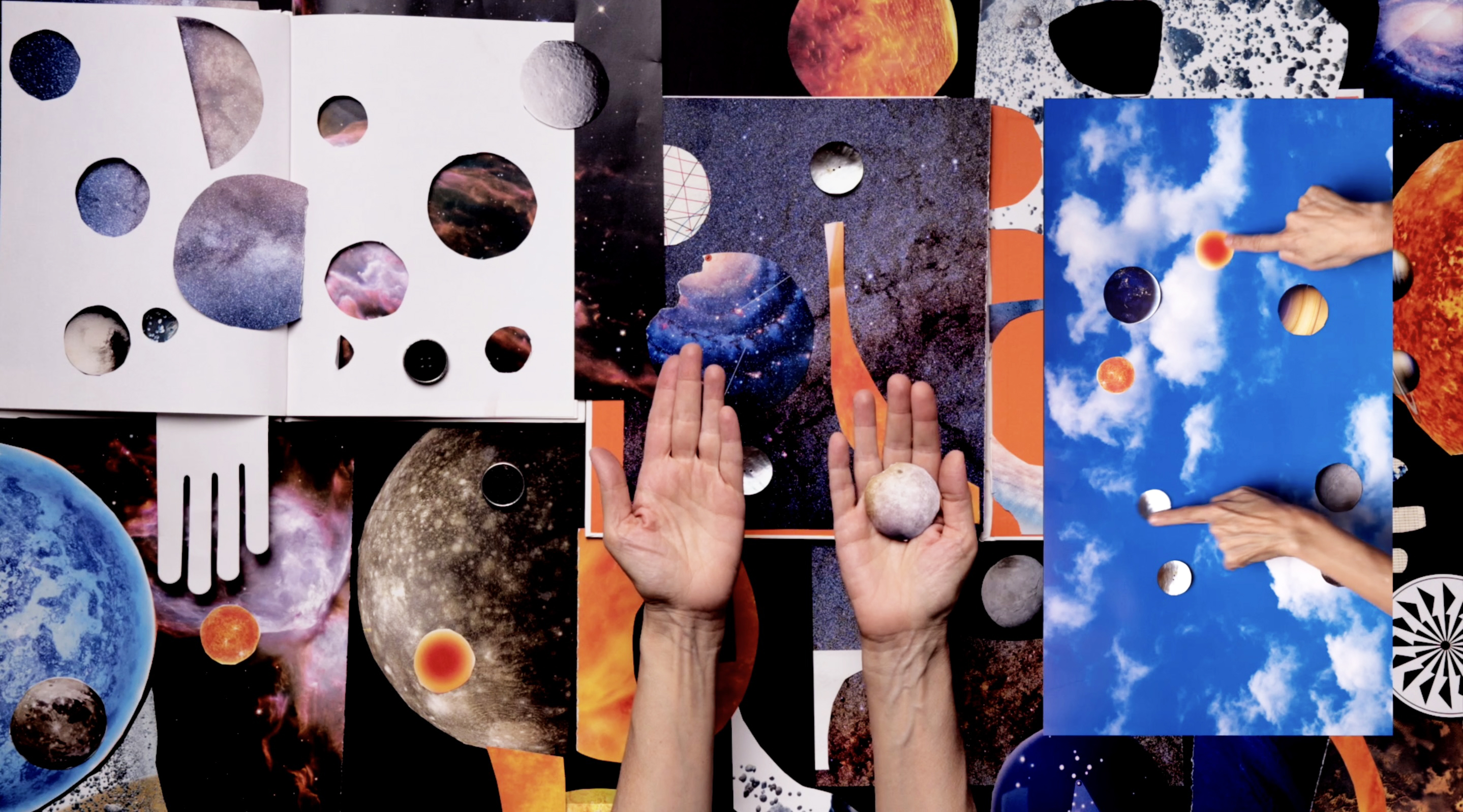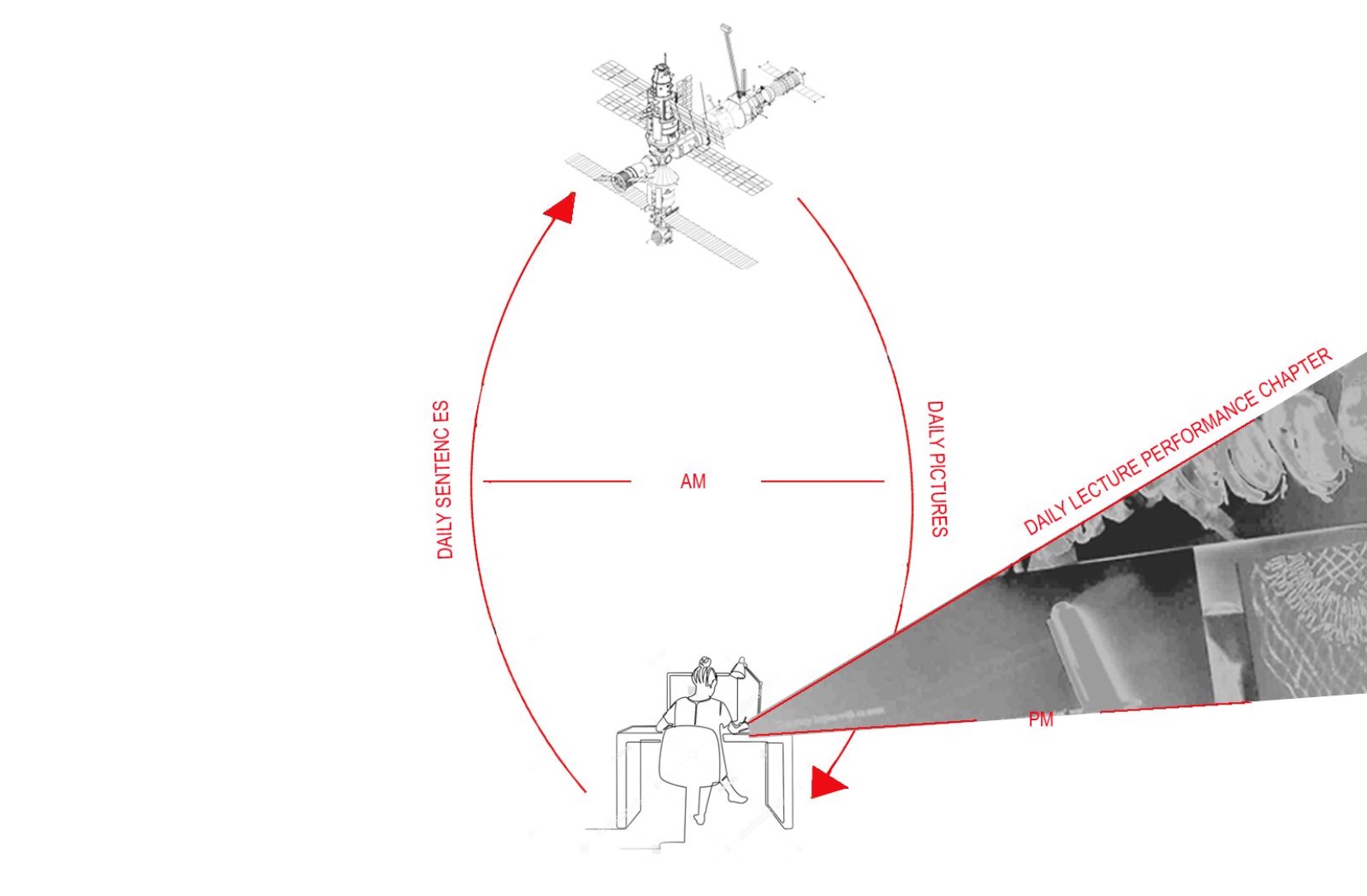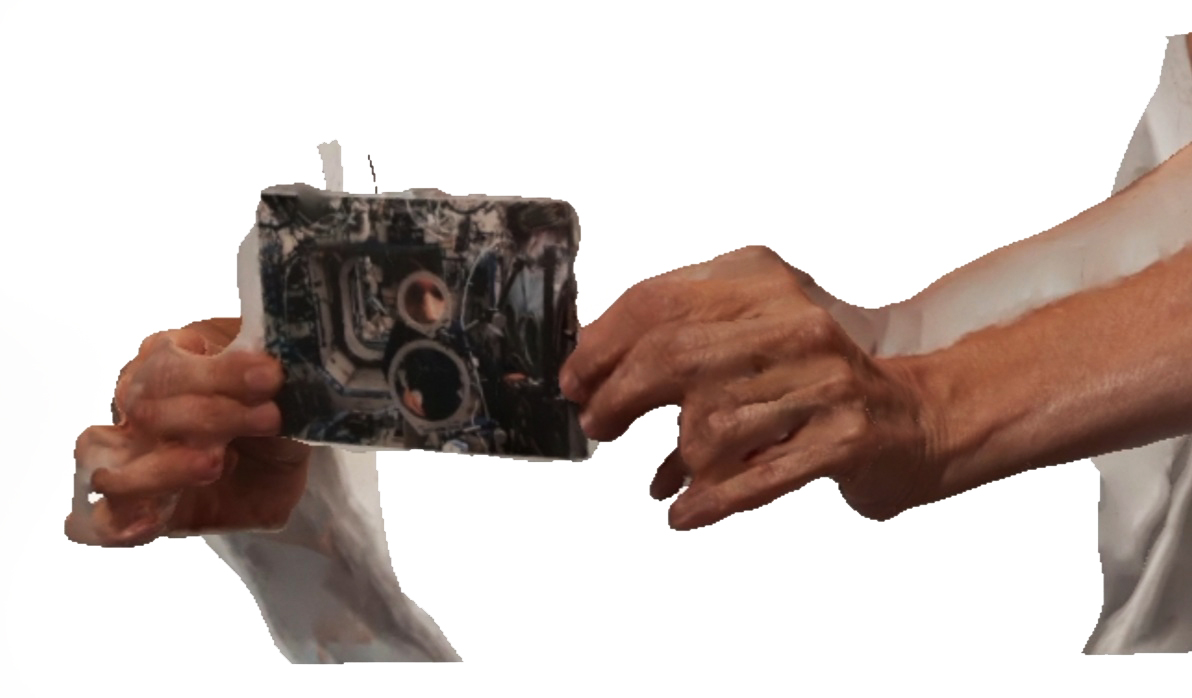
2022- 2023: Ground Control: When The Horizon Becomes A Frontier
In April 2022, astronaut Eytan Stibbe spent eight days at the International Space Station. During this time, we corresponded daily and attempted to create a virtual tour of a place most people will not visit: space. If space used to be the horizon, it is currently becoming a new technological and economic frontier. The project used various art-based methods to respond to the politics of the new colonial technologies of reach—the “new space,” a rapidly developing techno-political arena that is undergoing an accelerated process of privatization. Every morning, I sent the astronaut three sentences to space. For each sentence, he replied with the photo. The images sent from space became a starting point for an art-based research that wondered, can we tour a place that we will never visit? The research wove together theoretical and artistic explorations of human-machine-space relations while unearthing questions of access, power, and tangibility. The project included a participatory encounter during the time astronaut spent in space; a lecture performance; a single channel video piece; written chapter; and public programing.

Research outcomes:
· A performative encounter over eight days: between the artist and the astronaut during his stay at the International Space Station. Their correspondence culminated in a series of texts.
· Lecture performance: The lecture performance follows Robert Smithson’s term “Ruin in Reverse,” which he developed during the Space Race to describe the memory-traces of an abandoned set of futures. As with Smithson, the project uses fictioning as a method to explore the co-presence of many different pasts and futures within a given landscape.
· Single channel video work: Ground Control: When The Horizon Become A Frontier
· Written chapter: in The Contactless Condition, Data Browser series, Open University Press, London (forthcoming, 2025)
· Public Programing: The Space Between Usat the Exhibition Research Lab, Institute of Art and Technology, Liverpool John Moores University, September 2024.
